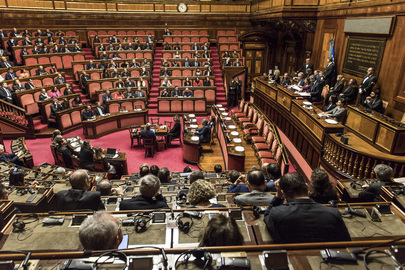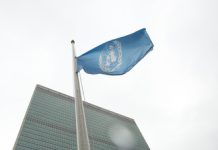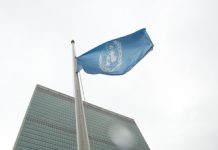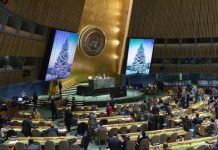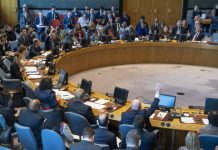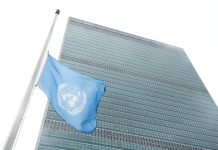This is the News in Brief from the United Nations.
Papua New Guinea landslide response hampered by complex conditions
Efforts to rescue those impacted by the deadly landslide in Papua New Guinea have been complicated by fears that the waterlogged ground could shift again.
Reports from the National Disaster Centre indicate that up to 2,000 people were buried under mud and rubble after a massive landslide last Friday at 3am “when most people were probably sleeping”, said Itayi Viriri, UN migration agency (IOM) regional spokesperson for Asia and the Pacific.
The landslide engulfed the area, burying homes, infrastructure and farmland under up to eight metres of soil and debris. Only six bodies have been recovered so far.
Dramatic video from the scene of the disaster showed locals and rescue workers struggling to shift a wall of mud and rubble using shovels. But safe access continues to be extremely difficult, Mr. Viriri said:
“Just today, this morning, one of the main thoroughfares leading to this area, a bridge there collapsed. And now they have to fix it to make sure that all the convoys that are going to provide support have access.”
The UN agency warned that with so many bodies still to be recovered from beneath the rubble, there are concerns that underground water flowing down the mountain will contaminate local drinking water sources.
Deep concerns over ‘inhuman’ detention of Gazans by Israeli authorities
UN and partner organizations have expressed deep concern over the “inhuman” detention of suspected Palestinian fighters in the enclave by Israeli authorities, alleging treatment so poor that some had to have limbs amputated “due to prolonged shackling”.
In a new report on the situation in Gaza, the authors cited testimonies “from medics and whistleblowers” that injured detainees have been held at a field hospital with “shackled hands and feet and blindfolded 24/7 to their beds”.
Prisoners are “fed through a straw, with several cases of detainees having their limbs amputated due to prolonged shackling”, according to the update from the Global Protection Cluster, which brings together UN agencies and other international and non-governmental organizations.
It echoes earlier concerns about alleged mistreatment of detainees from the UN human rights office, OHCHR and independent rights experts. The Israeli army has previously denied these claims.
On the issue of the Israeli hostages, the report indicated that 128 of the 253 people captured during Hamas-led terror attacks on 7 October still remain in Gaza.
More than 35 of the hostages have been declared dead and those still alive likely face “the direst of conditions”, the report’s authors said, citing accounts from those released indicating “multiple reports of sexual abuse in captivity”.
3.2 million children at risk in Bangladesh as Cyclone Remal hits hard: UNICEF
Cyclone Remal has hit the coastal areas of Bangladesh hard, increasing existing vulnerabilities for more than 8.4 million people – including 3.2 million youngsters – the UN Children’s Fund (UNICEF) has warned.
The deadly storm left more than 20 dead, bringing down power lines and destroying thousands of homes across coastal areas in Bangladesh and neighbouring India on Sunday.
In an alert, UNICEF, said that the storm has increased health, nutrition, sanitation and safety risks.
Help is being provided for affected communities in partnership with the Bangladesh Government in the form of prepositioned supplies that include water purification tablets, jerrycans, mobile toilets, hygiene and family kits.
Two rapid response teams are ready to be deployed to the worst-affected areas, UNICEF said, adding that the initial response aims to reach people in coastal areas including Cox’s Bazar.
But “critical funding gaps remain across all sectors to meet the immediate needs of girls, women, and persons with disabilities”, the UN agency noted.
Shanaé Harte, UN News.
Source of original article: United Nations (news.un.org). Photo credit: UN. The content of this article does not necessarily reflect the views or opinion of Global Diaspora News (www.globaldiasporanews.com).
To submit your press release: (https://www.globaldiasporanews.com/pr).
To advertise on Global Diaspora News: (www.globaldiasporanews.com/ads).
Sign up to Global Diaspora News newsletter (https://www.globaldiasporanews.com/newsletter/) to start receiving updates and opportunities directly in your email inbox for free.


